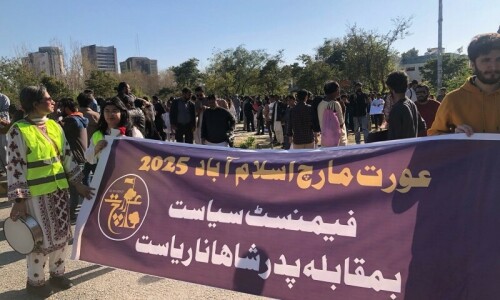ROME: Global forest loss has slowed over the past five years, UN researchers said on Thursday, but progress has been uneven, with population growth driving a rise in deforestation in Africa.
Over the past decade, forest loss halved in South America, long a hotspot, according to the Global Forest Resources Assessment 2020, while parts of Europe and Asia saw a rise in forest cover as more trees were planted.
The United Nations study found 10 million hectares of forest were destroyed annually in the past five years, down from 12 million hectares a year in the previous half-decade.
It did not include figures from the Amazon last year, when large swathes of forest were burned in wildfires. But even if it had, the trend would likely have been positive.
Anssi Pekkarinen, who coordinated the assessment, said net forest loss was decreasing, the size of protected areas increasing and more forests now have sustainable management plans.
However, there are regional differences, said Pekkarinen, a senior forestry officer with the Food and Agriculture Organization (FAO).
“In Africa, the situation is getting worse and this is most likely because of population pressure,” he told the Thomson Reuters Foundation by phone.
The losses occurred mainly in sub-Saharan Africa, where the population is expected to double by 2050, said Pekkarinen, adding more efficient farming methods would allow more forest to be protected.
“The fact that the people rely on small scale agriculture for their livelihoods and that wood and charcoal are the main source of energy for a huge number of people in this area,” he added.
“We need to change this trend somehow.” Scientists say protecting forests is one of the cheapest and most effective ways to curb climate change because trees suck carbon dioxide, the main gas heating up the planet, from the atmosphere.
Health and environmental experts have also said rapid loss of forests is a major factor in the spread of infectious diseases, including the current coronavirus pandemic that has so far killed nearly 250,000 people worldwide.
While the trend is broadly positive, Pekkarinen said the world had a long way to go to achieve an internationally agreed goal to halt deforestation by 2020.
“Deforestation is still going on,” he said.
Published in Dawn, May 8th, 2020














































